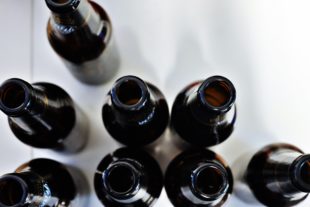Drinking: Facts and a Christian Counseling Perspective on Alcohol Recovery
Christian Counselor Spokane
For many people, a “rite of passage” into adulthood includes becoming old enough to drink alcohol. But for many of those people, drinking alcohol doesn’t stop with that first drink.
 Drinking alcohol seems harmless, at first. You’re at a party, wanting to have fun, you drink a beer; you’re tired from a long workday and have a glass of wine to unwind; you’re struggling through some life challenges; you’re feeling lonely, sad, confused; you have one drink, just to get your mind off of life for a while.
Drinking alcohol seems harmless, at first. You’re at a party, wanting to have fun, you drink a beer; you’re tired from a long workday and have a glass of wine to unwind; you’re struggling through some life challenges; you’re feeling lonely, sad, confused; you have one drink, just to get your mind off of life for a while.
You’re on a first date; you’re a little nervous, so you order just one cocktail before your date gets there, to take the edge off your nerves and give you a little confidence. For many people, this is how alcoholism starts; that “one drink” leads to another, then another, and before you know it, you’re completely dependent upon alcohol to get through the day.
Nikolovska (2020) provides the following statistics on alcohol use and abuse.
- 1 in 8 American adults fulfills the criteria for having an alcohol use disorder (AUD).
- 56% of American adults indicated that they’d had a drink within the last month.
- For students in college, the alcohol facts show that almost 150,000 of them develop an alcohol-related health problem each year.
- 1% of 15-year-olds report having had at least one drink so far in their lifetime.
- More than 5.3 million adult women have an alcohol use disorder.
- About 20% of the adult population in the US drinks alcohol as a way to fall asleep.
- The collective risk of obstructive sleep apnea in individuals who consume alcohol increased by 25%.
- Alcoholics Anonymous mentions a success rate of 50%, with 25% staying sober after some relapses.
General Alcoholism Statistics
1 in 8 American adults fit the criteria for having an alcohol use disorder (AUD).
An alcohol use disorder can be fatal due to liver diseases and other complications. There are also reports that alcohol is by far the most misused addictive substance, with up to 12.7% of American adults suffering from one. (Healthline)
86.4% of adults admit to drinking alcohol at least once in their lifetimes.
This and several of the following alcohol use statistics are from a comprehensive survey carried out in 2015 called the National Survey on Drug Use and Health (NSDUH). It shows that a large number of people have consumed alcohol during at least one stage of their lives. (Evergreendrugrehab)
Teenagers who start drinking before the age of 15 have a higher probability of alcohol dependence.
These teenage alcohol abuse statistics show that underage drinking should be prevented by any means to prevent the development of alcohol dependence in adulthood. (dosomething)
56% of American adults indicated that they’d had a drink within the last month.
70.1% of those surveyed also stated that they’d had a drink within the last year, according to the NSDUH. (Evergreendrugrehab)
The minimum legal drinking age ranges from 16 to 21 in most countries around the world.
The alcohol facts and statistics tell us that in 116 countries, the minimum legal drinking age falls at 18–19, making it the most common age range. 19 countries don’t have any minimum legal drinking age, while alcohol is banned in 16 countries, most of which are Muslim. (drinkingage)
College Alcohol Statistics
80% of college students consume alcohol.
This means that four out of five college students drink alcohol to some degree. This doesn’t imply they’re all alcoholics; it just shows the number of students who aren’t opposed to drinking. Nevertheless, college alcoholism affects millions of students around the country yearly according to the alcohol stats. (Alcoholrehabguide)
50% of the college students who drink also binge drink.
Binge drinking refers to rapidly consuming large amounts of alcohol. These facts show that 80% of students who consume alcohol in college drink way too much. This can generally be attributed to the number of parties held in college. (Alcoholrehabguide)
Students are exposed to binge drinking the most during the first six weeks of their freshman year.
The alcohol abuse facts show that some students start drinking on the first day of school, presumably as a result of peer pressure. In this case, students will keep drinking throughout their college careers without thinking about the consequences. (Collegedrinkingprevention)
Almost 150,000 college students develop an alcohol-related health problem each year.
This is a direct result of heavy drinking. The complications vary and may include high blood pressure, pancreas inflammation, or liver damage. (OhioUniversity)
Interesting Facts About Alcohol Use Disorder (AUD)
15.1 million adults in the US aged 18 and older have an alcohol use disorder.
This amounts to 6.2% of the total population, which includes 5.3 million women and 9.8 million men. These numbers amount to 8.4% of men and 4.2% of women. (alcoholaddictioncenter)
6.7% of all the adults with AUD in 2015 received treatment.
These facts about alcohol abuse show that some people are willing to get treatment for it, but a large percentage (93.3%) of the population with AUD didn’t seek out treatment. Among those aged 18 and up, this accounts for 7.4% of men and 5.4% of women. (NIAAA)
A considerable number of adolescents aged 12–17 had AUD in 2015.
Reports show that 623,000 teenagers had AUD, including 298,000 young men and 325,000 young women. These values amount to 2.3% of the boys and 2.7% of the girls in this age bracket. These alcohol statistics from 2015 were retrieved from the National Survey on Drug Use and Health. (NIAAA)
Global Alcohol Statistics
Alcohol is a major contributor to over 200 diseases and injury-related health conditions.
The World Health Organization released a report on alcohol and health in 2014 revealing that alcohol influenced over 200 health conditions and diseases with an emphasis on cancers, liver cirrhosis, injuries, and DSM-IV alcohol dependence. The report covering these alcohol and cancer statistics also states that as of 2012, 5.1% of the burden of injury and disease all around the world was associated with alcohol consumption. (alcoholireland)
Over 10% of kids in the US live with a parent that has alcohol issues.
The condition can negatively affect children and even split the family, according to alcohol addiction statistics. (NIAAA)
 Globally, alcohol abuse was the fifth major risk factor in 2010 for disability and premature death.
Globally, alcohol abuse was the fifth major risk factor in 2010 for disability and premature death.
This stat also shows that among individuals between the ages of 15 and 49, it’s the first risk factor for disability and premature death. About 25% of the total deaths occur among those between the ages of 20 and 39. (IOGT)
33.1% of 15-year-olds report having had at least one drink so far in their lifetime.
These alcoholism statistics come from the 2015 NSDUH study, which also states that about 7.7 million individuals aged 12–20 reported drinking alcohol within a month of being surveyed (which accounts for 19.8% of men and 20.8% of women). (NIAAA)
Drinking and driving accounts for over 30% of all driving deaths a year.
This is one of the stats on alcohol proving that people need to be educated on the dangerous consequences that come with drinking and driving. (Talbottcampus)
More than 15 million individuals in the US struggle with alcohol use.
These statistics show that addiction is a problem for a large population of people, but less than 8% of them receive treatment for the condition. (addictioncenter)
More than 65 million Americans report binge drinking within a month of being surveyed.
Of those who regularly drink alcohol, the facts show that this number comprises more than 40% of them. (Talbottcampus)
Teen alcohol use kills 4,700 individuals annually.
This accounts for more than all the deaths caused by illegal drugs. Also, it’s estimated that drunk driving costs the US more than $199 billion yearly. (HuffPost)
Alcoholism in Women
More than 5.3 million adult women have an alcohol use disorder.
These statistics on alcohol were provided by the National Institute on Alcohol Abuse and Alcoholism. That’s a lot of people living with this disorder, and steps need to be taken to reduce the number. (Talbottcampus)
About 45% of adult women report having drunk alcohol within a month of being surveyed.
Women who engage in binge drinking have a higher probability of having sex without protection, increasing the risk of sexually transmitted diseases and unintended pregnancy. Fetal alcohol syndrome statistics also show that this increases the risk of the child developing a birth defect. (Talbottcampus)
About 1 in 2 females of childbearing age drink.
There can be dangerous results for the baby if the mother drinks while pregnant and continues to do so – either unknowingly or intentionally. Additional drug and alcohol statistics show that 18% of females in this age group binge drink (usually five drinks at once on average). Worse, excessive drinking can have other negative effects on a woman’s reproductive health. For example, it can disrupt the menstrual cycle and even lead to infertility. (CDC)
The fetal alcohol syndrome facts indicate that 3 children out of 10,000 have this condition, according to a study focusing on children aged 7 to 9 years.
And we already know that these same children have a greater risk of developing severe physical and mental birth defects. (CDC)
Alcohol and Sleep Statistics
About 20% of the adult population in the US drinks alcohol as a way to fall asleep.
According to these alcohol facts and statistics, many people drink alcohol before bed. In reality, alcohol is a strong somnogen (or sleep inducer). Scientists led by Mahesh Thakkar, Ph.D., have been studying the impacts of alcohol on sleep for over five years. They discovered that alcohol interferes with the brain’s ability to regulate a person’s need for sleep. (Psychcentral)
Alcohol and Sleep Apnea
The collective risk of obstructive sleep apnea in individuals who consume alcohol increased by 25%.
These alcohol facts were determined thanks to a pooled assessment of 21 studies in which comparative hazards were estimated. The results revealed that the general risk of obstructive sleep apnea rose by 25% among individuals who drank alcohol to a greater degree than people who consume low quantities of alcohol or none at all. (NCBI)
Alcohol and Sleep Deprivation Statistics
Patients in alcohol therapy reported insomnia rates of 25%–72%.
The level of sleep disruption is greater among the majority of patients with diagnosed alcohol dependence. However, differing definitions and measurements of insomnia and alcohol reliance make it hard to compare these studies. (NCBI)
7% of people with insomnia report alcohol abuse.
The alcohol consumption statistics leading to this discovery are according to the epidemiological research from a large community sample. This statistic clearly shows the effects of alcohol on the body. The research also demonstrates how sleep disruption for at least two weeks can be a big risk factor for alcohol use disorders. (NCBI)
Alcohol and REM Sleep Statistics
27 studies from a 2013 review show that alcohol use is a contributing factor to poor quality sleep.
This is one of the reasons people don’t get the right kind of sleep after drinking alcohol. This is because the alcohol prevents REM sleep, which is often deemed the most restorative form of sleep. You’re likely to wake up feeling unfocused and groggy with poor REM sleep. (Medicalnewstoday)
The statistics about alcohol indicate that 40% of US citizens with PTSD have symptoms of an alcohol use disorder (AUD).
PTSD victims have a higher chance of developing alcoholism as a way to self-medicate. The seriousness and type of PTSD symptoms that they suffer contribute to their alcohol addiction. (Alcoholrehabguide)
Statistics on AA Meetings
Alcoholics Anonymous mentions a success rate of 50%, with 25% staying sober after some relapses.
The alcohol relapse statistics since AA itself provides many of the group’s published success rates. However, because some participants choose to stay anonymous or don’t want to admit to a recurrence, there isn’t enough impartial information to assess these rates. (Alcohol.org)
About 10% of the individuals who join a 12-step program report long-term recovery.
This is according to research published by the American Society of Addiction Medicine (ASAM). However, participants also tend to drop out at a rate of 40% during their first year, causing group participation to alter frequently. (Alcohol.org)
Some Popular Questions About Alcoholism
What percentage of drinkers are alcoholics?
 Of the US adults who overdrink, only 10% are alcoholics. This is from a study by the CDC that broke down self-reported data acquired from more than 138,100 adults in the US. The study verified that 90% of heavy drinkers fell short of the standard requirements for alcoholism. Women who have eight or more drinks a week and men who drink fifteen or more are considered heavy drinkers. (Reuters)
Of the US adults who overdrink, only 10% are alcoholics. This is from a study by the CDC that broke down self-reported data acquired from more than 138,100 adults in the US. The study verified that 90% of heavy drinkers fell short of the standard requirements for alcoholism. Women who have eight or more drinks a week and men who drink fifteen or more are considered heavy drinkers. (Reuters)
What percentage of alcoholics die from alcoholism?
In 2012, 5.9% of all deaths were related to alcohol in some way. More specifically, 7.6% of those who suffered a fatality were men, and 4.1% were women. These stats also show that around the world, there were 3.3 million deaths with a connection to alcohol. (WHO)
What country has the highest alcoholism rate?
Belarus consumes 17.5 liters of pure alcohol per person. Studying the amount of pure alcohol gives a clearer picture than studying the overall number of drinks. This statistic lists Belarus as the country that consumes the most liters of pure alcohol per capita. According to the statistics, the countries that follow after Belarus are Moldova, Lithuania, and Russia with 16.8, 15.4, and 15.1 liters, respectively. (Worldatlas)
How many drinks a day is considered what an alcoholic would drink?
Consuming more than four drinks for men and more than three drinks for women is heavy drinking. About a quarter of the individuals who exceed these boundaries have an alcohol use disorder. Even so, the remainder is in greater danger of developing an AUD or related issue. Individual risks also differ. Some people may have issues drinking less than these quantities, especially if they drink too fast. (NIAAA)
How many die from alcohol annually?
From 2006 to 2010, alcoholism led to 88,000 deaths in the United States a year. This study also claims that their lives were shortened by an average of 30 years. Also, excessive drinking among working adults from the ages of 20 to 64 years was responsible for one fatality out of 10. (CDC)
How do people die from alcohol?
Over three million individuals died in 2016 as a consequence of damaging alcohol use. When it comes to the effects of alcohol, 28% of all alcohol-related fatalities resulted from injuries like traffic accidents, self-harm, and interpersonal violence; 21% from digestive disorders; 19% from cardiac illnesses; and the rest from infectious illnesses, cancers, mental illnesses, and other health conditions. (WHO)
Is alcoholism genetic?
Genetics is the underlying cause of alcohol use disorder 50% of the time. A history of substance abuse in the family points to a person being more likely to struggle with issues relating to alcohol. The researcher also found that genetic factors represent 40%–60% of the difference between individuals struggling with alcohol use disorder. (Americanaddictioncenters)
Who drinks the most alcohol?
Men drink more alcohol than women by 11.1%. According to a survey by the United States Department of Health and Human Services, 57.6% of men twelve years and older and 46.5% of women aged twelve years and older reported consuming a minimum of one alcoholic drink within 30 days of being surveyed. (TheDailyBeast)
What do alcoholics die of?
It was discovered that alcohol contributes to at least sixty different health conditions. Alcohol is one of America’s major causes of preventable death. Other deaths associated with alcohol are more immediate and include drunk driving and violence involving alcohol.
More individuals die from drug overdoses than from alcohol, as shown in most alcohol poisoning facts. Additionally, a tiny proportion of all alcohol-related fatalities are due to overdrinking. Most alcoholics die of alcohol-related long-term health issues such as liver disease, heart problems, or cancer. (Alcoholrehabguide)
Is alcohol use linked to suicide?
It was discovered that 29% of suicide victims in America had alcohol in their system. Although alcohol can provide temporary relief from suicidal thoughts, it exacerbates the problem in the end.
The alcohol addiction facts also show that mid-to-long-term alcohol abuse in most instances makes suicidal ideation both stronger and more common. Alcohol heightens the symptoms of many mental health circumstances such as borderline personality disorder and depression, which then increases the chances of attempted suicide. (Medicalnewstoday)
Put simply, what’s the drunkest country?
In Moldova, the alcohol rate is 4.81 gallons per person (or 18.2 liters). This is according to a 2011 report by the WHO, which also states that consumption levels are usually highest in the developed globe, and abstention rates are usually highest in nations with large Muslim communities. The study examined the consumption of different types of alcohol, including spirits, beer, and wine. (cbsnews)
What ethnicity drinks the most alcohol?
Native Americans are at a greater risk of drinking heavily, at 12.1%, followed by white people (8.3%) and Hispanics (6.1%). A higher proportion of Native Americans (29.6%) also binge drink, with slightly reduced percentages for whites (25.9%), Hispanics (25.6%), and black people (21.4%). (NIAAA)
For the alcoholic, overusing alcohol can cause all kinds of problems. Many alcoholics have trouble keeping a job, while others are unable to cope with family dynamics or social situations in a healthy manner. Many people who consume too much alcohol feel shame and withdraw from relationships to keep their addiction secret.
While overconsumption of alcohol can and does lead to alcohol addiction, not all people who drink excessively become addicted to alcohol. These people abuse, or misuse, alcohol. While alcohol abusers may not be addicted to alcohol, this abuse can still cause many issues. Many people who abuse alcohol do become addicted later in life.
While it is not known exactly who or when a person becomes an alcoholic, we do know that regularly consuming alcohol disrupts the balance of gamma-aminobutyric acid (GABA) and glutamate in the brain; GABA controls impulsivity, while glutamate stimulates the nervous system.
 Also, dopamine levels in the brain rise when alcohol is consumed, making the experience of drinking more satisfying. Over time, months for some and years for others, excessive alcohol use significantly alters these chemicals in the brain, causing the body to crave more and more alcohol. Other risk factors include:
Also, dopamine levels in the brain rise when alcohol is consumed, making the experience of drinking more satisfying. Over time, months for some and years for others, excessive alcohol use significantly alters these chemicals in the brain, causing the body to crave more and more alcohol. Other risk factors include:
Genes. People may have certain genes that make addiction more likely. This can be seen in a family history of addiction.
Beginning drinking age. Studies suggest that people who start drinking before the age of 15 may be more likely to overuse and abuse alcohol.
Easy access. The price of alcohol and its availability has been linked to the abuse of alcohol.
Stress. Some stress hormones are connected to alcoholism. When a person is highly stressed and/or anxious, drinking alcohol can be an attempt to block these feelings out.
Peer drinking. People who socialize with people who drink excessively are more likely to drink excessively themselves.
Low self-esteem/depression. People often self-treat feelings of sadness, worthlessness, and other negative feelings with too much alcohol.
Media. In today’s society, we are bombarded with pictures, TV shows, movies, and music that hold consuming alcohol up as glamorous, fun, and cool.
If you are concerned for yourself or someone you know regarding alcoholism, there are some signs and symptoms to look for:
- Drinking alone or in secret
- The inability to control alcohol consumption
- Blacking out or losing periods of time after drinking
- Always drinking at certain times or for certain occasions (i.e. – drinks before meals, during meals, after work)
- Losing interest in life-hobbies, family, etc.
- Urges to drink
- Feeling irritated when alcohol is not available
- Storing alcohol in strange or unlikely places
- Problems with relationships, police, finances, or work that stem from drinking
- Needing more alcohol to feel its effect
- Sweating, shaking, or feeling nauseous when not drinking
Alcoholism is not a disease that only affects the alcoholic; alcoholism takes a toll on all of the people in an alcoholic’s life-family, friends, coworkers, neighbors, and others. Often, people in an alcoholic’s life feel helpless as to how to help their loved one and feel hopeless as to whether or not an alcoholic loved one can be saved.
Steps to Alcohol Recovery
But there is help. You can stop drinking! Although alcoholism cannot necessarily be cured, it can be treated. Alcoholics Anonymous, an international organization of peer support groups, claims a 50% success rate in patients who receive alcohol treatment and/or alcohol counseling through their organization, alone.
For the Christian, alcohol recovery is even more possible and successful! As Christians, we believe in and serve a God of the impossible! In Matthew 19, we find the story of the rich young ruler, who wanted to follow Jesus.
However, this young man went away, sad, when Jesus told him that to follow Him, the young man must give up everything. This instruction astounded the disciples, who stood by listening, and they began to ask Jesus, “If this man can’t be saved, then who can be saved?” Jesus looked at the disciples and replied, in Matthew 19:26, “With God, everything is possible.”
Everything is possible. If you or someone you love is struggling with alcohol abuse, there is hope, there is recovery, there is help. Will it be easy? No. Will changes in lifestyle have to be made? Yes. But we serve a God who can do anything in our lives – anything! God is waiting for you to come to Him with this problem, this addiction. His strength in and through you makes recovery possible.
The Bible is full of help when we struggle. Here are some verses that might be especially helpful to read daily and even memorize while you are working towards alcohol recovery:
So, Christ has truly set us free. Now make sure that you stay free, and don’t get tied up again in slavery to the law. – Galatians 5:1
Don’t be drunk with wine because that will ruin your life. Instead, be filled with the Holy Spirit. – Ephesians 5:18
Confess your sins to each other and pray for each other so that you may be healed. The earnest prayer of a righteous person has great power and produces wonderful results. – James 5:16
The temptations in your life are no different from what others experience. And God is faithful. He will not allow the temptation to be more than you can stand. When you are tempted, He will show you a way out so that you can endure. – I Corinthians 10:13
Don’t be fooled by those who say such things, for “bad company corrupts good character.” – I Corinthians 15:33
So humble yourselves before God. Resist the devil, and he will flee from you. – James 4:7
In His kindness, God called you to share in His eternal glory by means of Christ Jesus. So, after you have suffered a little while, He will restore, support, and strengthen you, and He will place you on a firm foundation. – I Peter 5:10
Then call on Me when you are in trouble, and I will rescue you, and you will give Me glory. – Psalm 50:15
And we are instructed to turn from godless living and sinful pleasures. We should live in this evil world with wisdom, righteousness, and devotion to God. – Titus 2:12
For I can do everything through Christ, who gives me strength. – Philippians 4:13
We, at Seattle Christian Counseling, are here, too, ready to help. You can quit drinking; your life and loved ones can be restored; your life can have meaning and joy again. Make the call today that can change your life and set you on the road to alcohol recovery.
Reference: Nikolovska, H. (February 9, 2020). 44 Important Alcoholism Statistics and Facts for 2020. Available online: https://disturbmenot.co/alcoholism-statistics/
“Beer Bottles”, Courtesy of Thomas Picauly, Unsplash.com, CC0 License; “Little Queen”, Courtesy of Senjuti Kundu, Unsplash.com, CC0 License; “Neon Drinks”, Courtesy of Stephan Valentin, Unsplash.com, CC0 License; “Washing Up”, Courtesy of CDC, Unsplash.com, CC0 License





